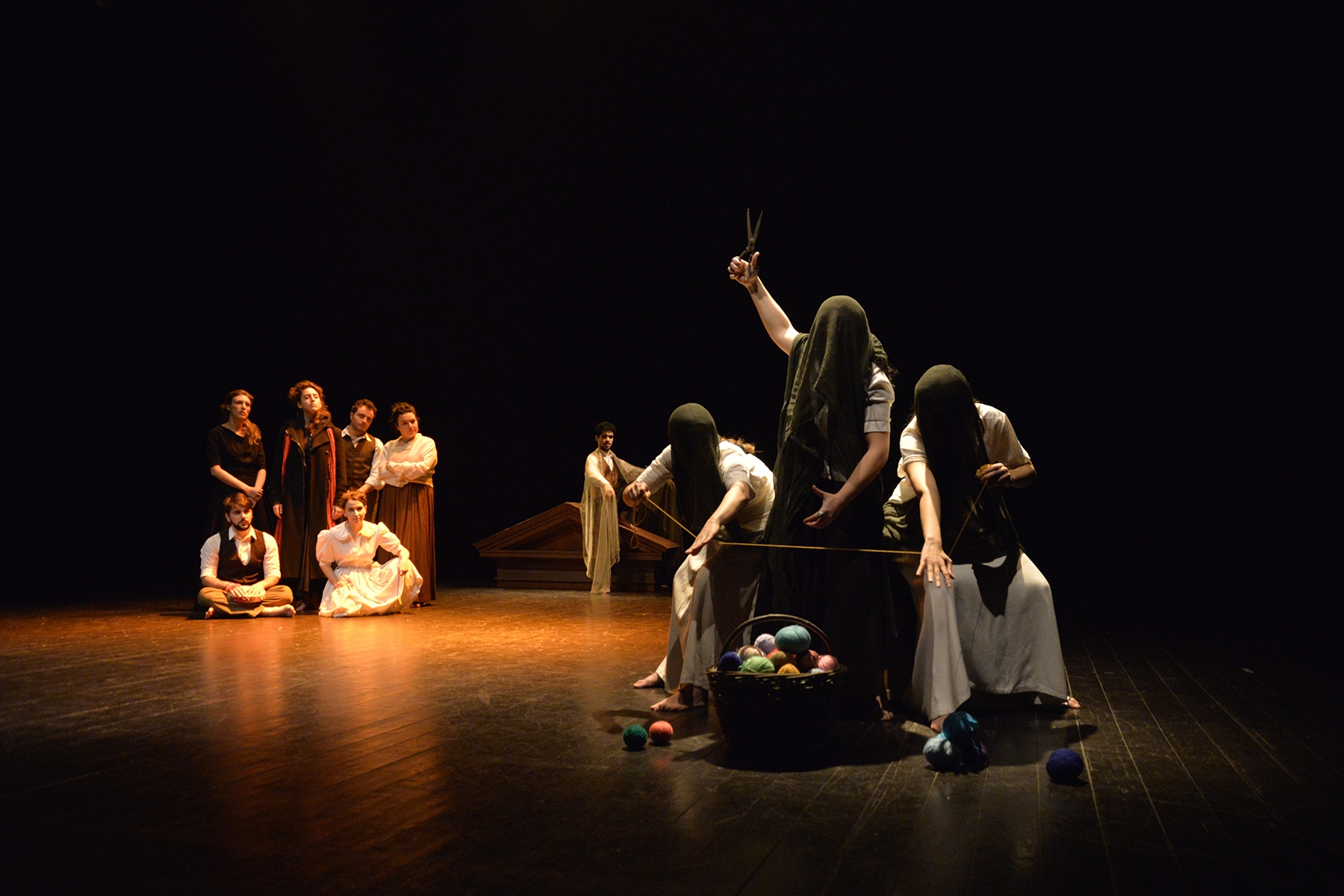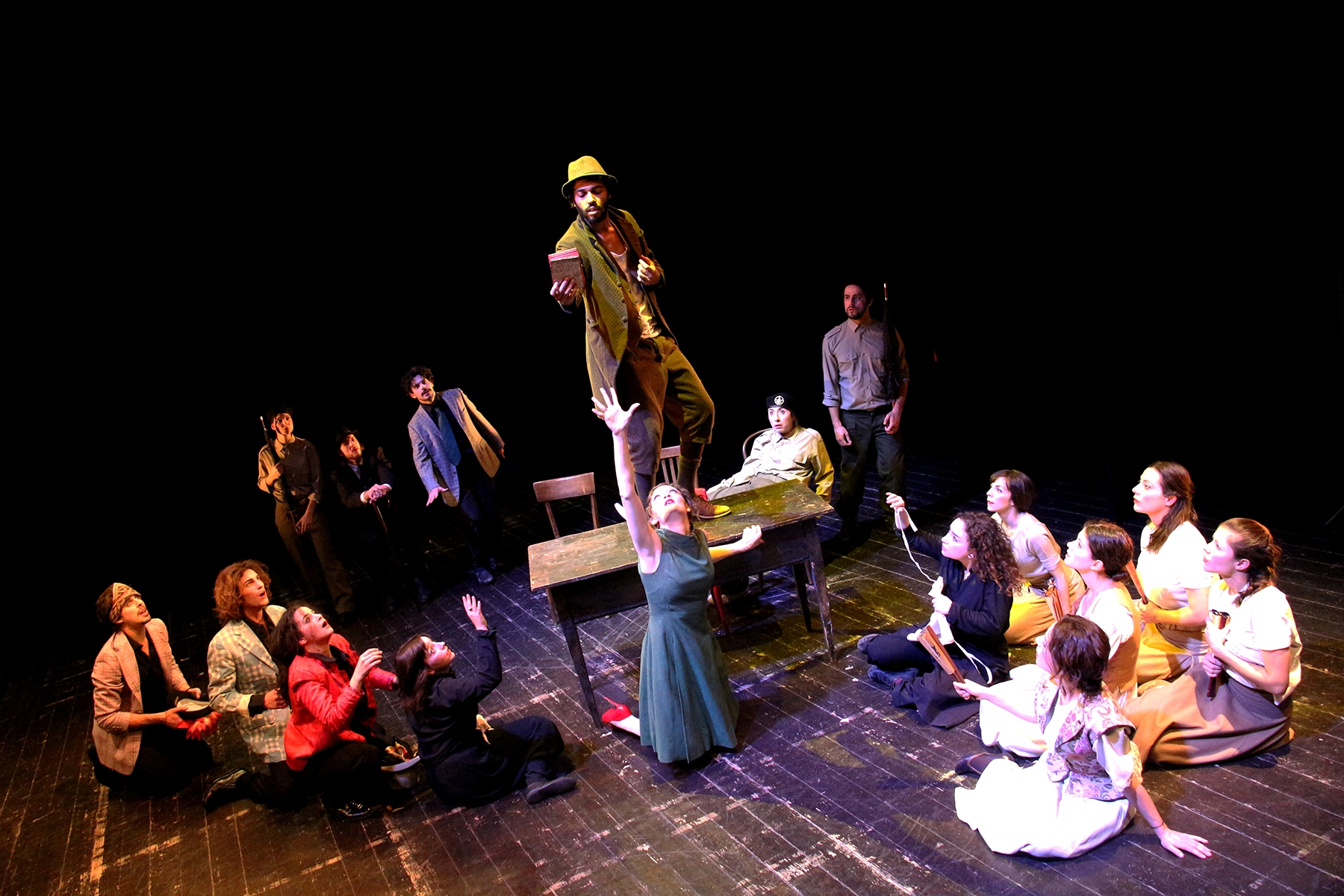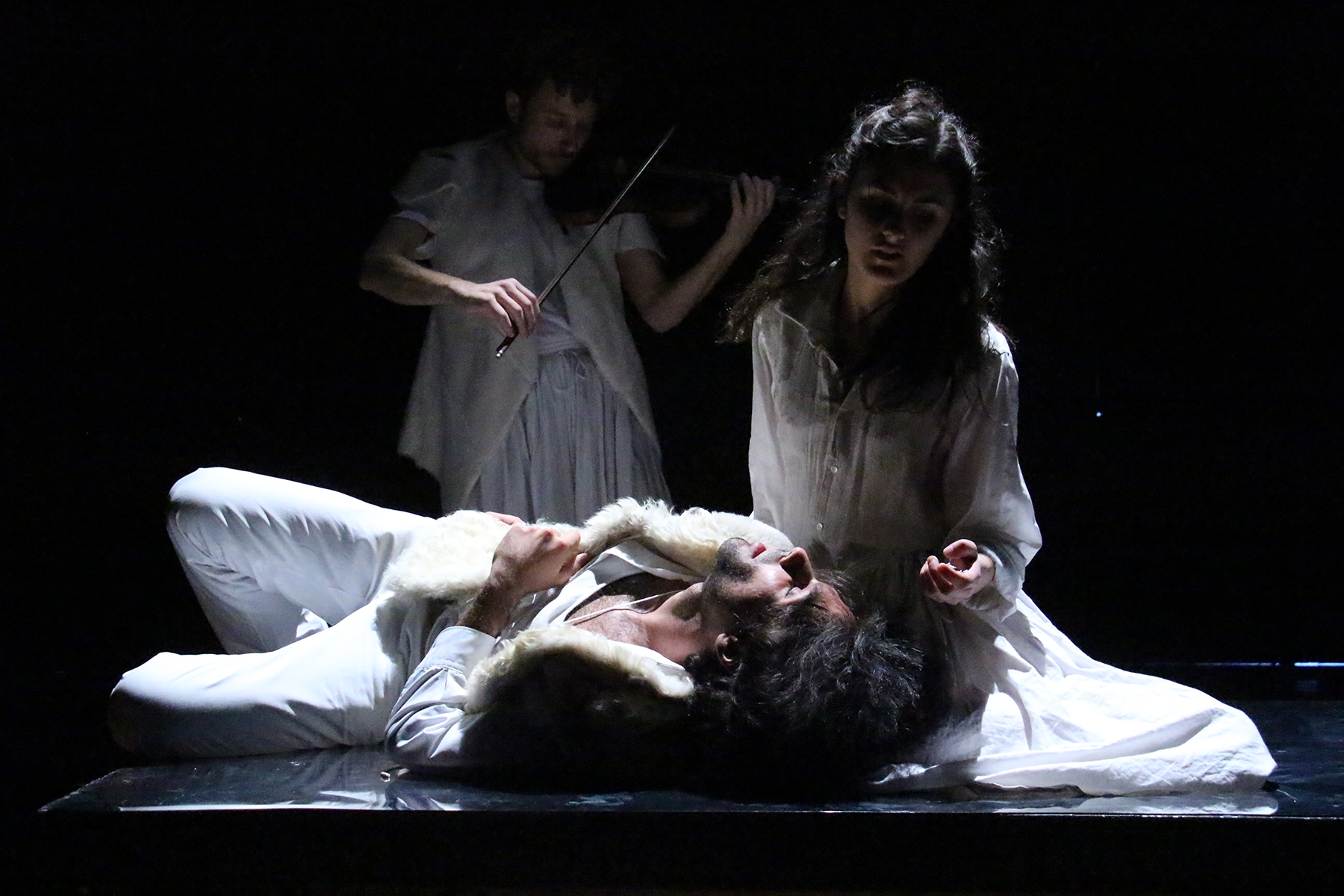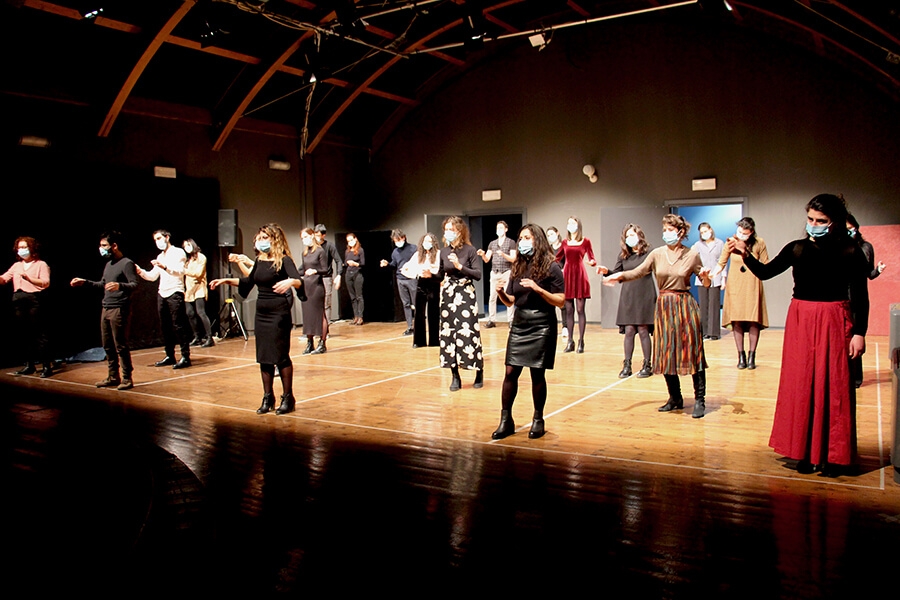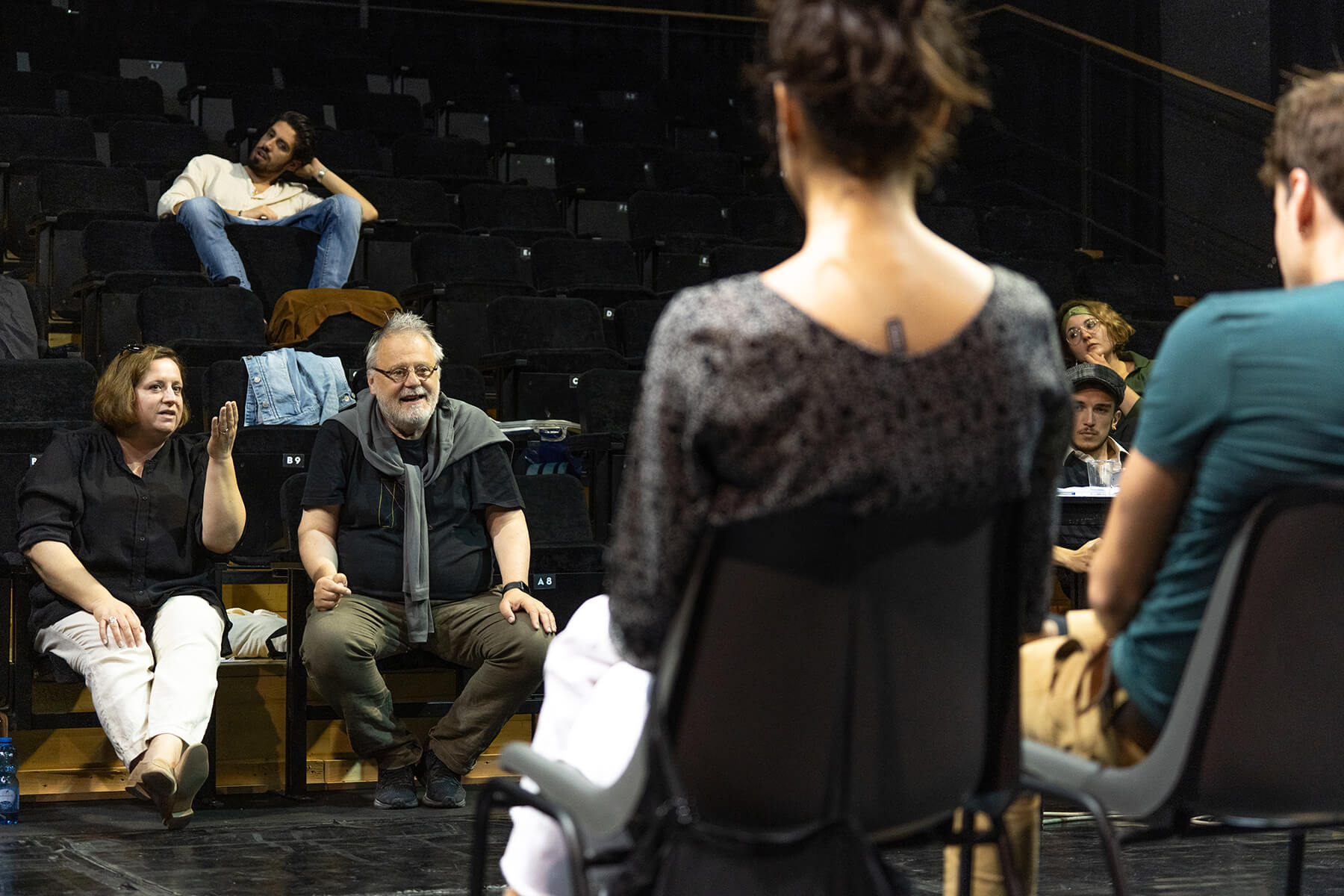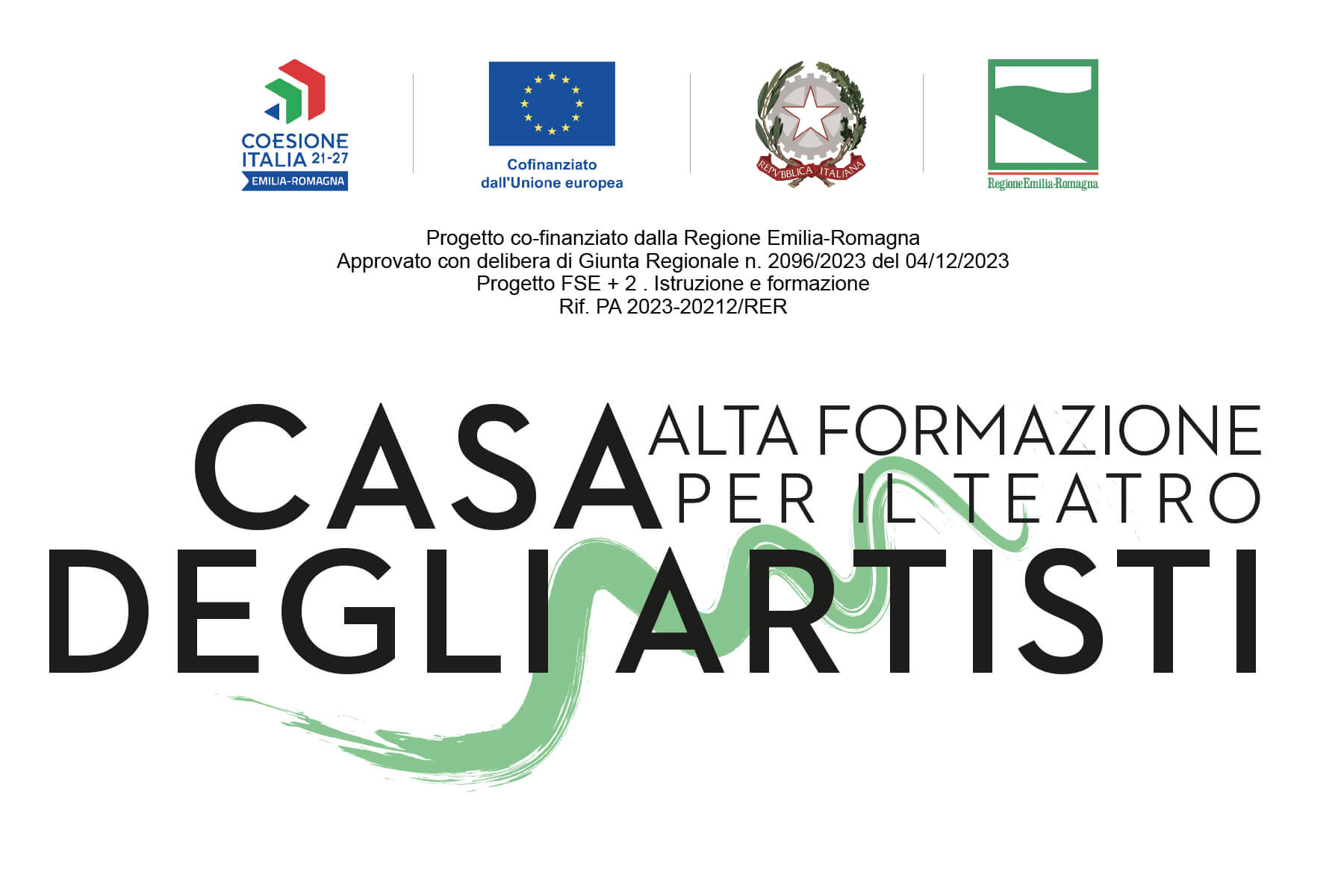
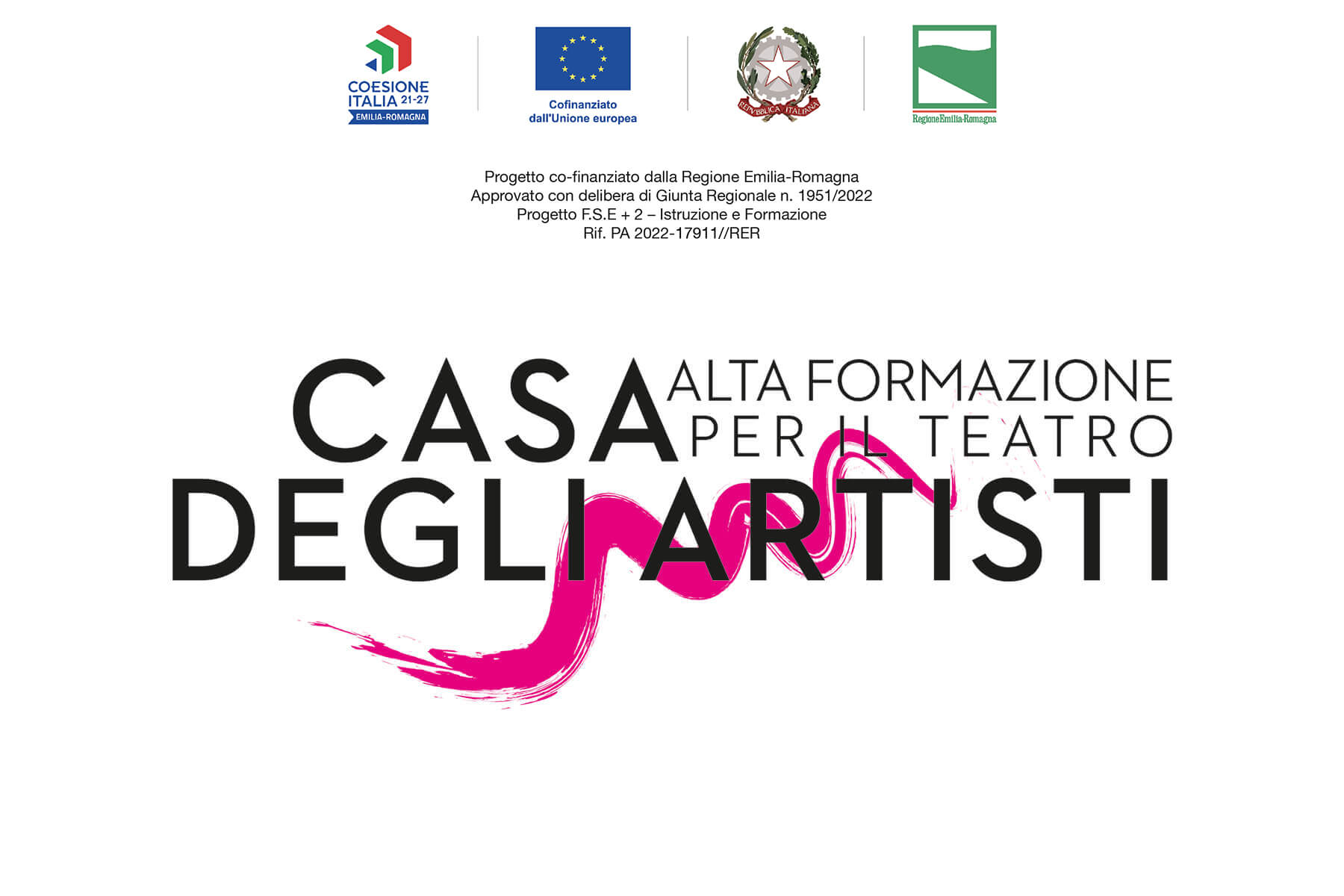
At the end of the evaluation process, the following students were admitted to the new course Casa degli Artisti
Andrea Bassoli, Gaia Bevilacqua, Elisa Ciofini, Giada Fasoli, Eugenia Faustini, Alessandro Fuligna, Enrica Graziano, Gian Luca Langone, Irene Papotti, Alessio Sallustio, Matilde Savorosi, Chiara Terigi, Damiano Venuto
Students are expected to attend an initial online welcome meeting on
7th October 2024
while the course will start on
14th ottobre 2024
50 years ago Teatro Due was born to answer to the inadequacy of the cultural and theatrical scene. With that same spirit, Casa degli Artisti aims to be a place where the artist is set free from bureaucracy and the traditional logic of financing, to explore and create new ways of expression and production, closer to postmodern life and critical towards “show-business society”.
The uniqueness of the proposal of Fondazione Teatro lies in the awareness that the everyday life of the theatre and the concreteness of the stage experience are as necessary as the spaces for both theoretical and practical study. Learning ‘live’ and in close contact with the profession and its experts gives the opportunity to practise the object of study at first hand, which is the added value of this project. Born from the close link between Teatro Due’s production activities and the need to prepare a new generation of artists with a vocation for multidisciplinarity, this training course aims to respond to the need for cultural creations capable of interpreting even discordant languages.
LECTURERS (list to be updated)
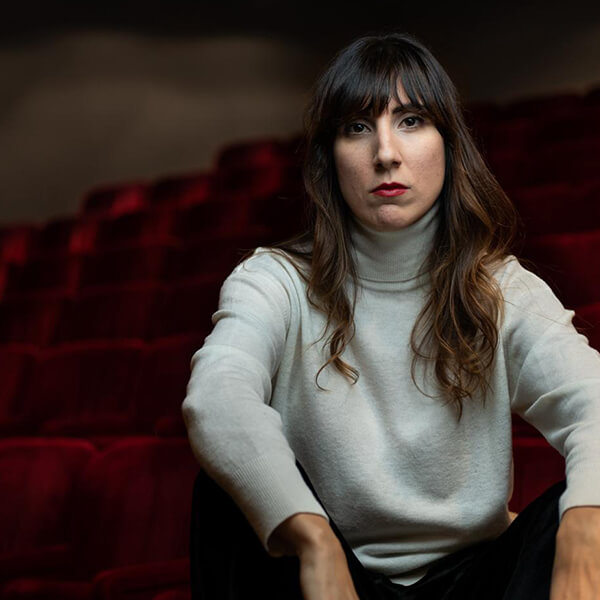
ELENA GIGLIOTTI
Actress, director.
Graduated from the acting school of Teatro Stabile di Genova, she has trained and been directed by, among others: Valerio Binasco, Giancarlo Sepe, Emma Dante, Gabriele Vacis. Since 2009, she has been the founder and the director of Compagnia nO (Dance first. Think later), and is the president of ‘R.A.C.’ (regist_ a confronto), the first association for theatre directors in Italy, for which she organizes artistic, ethical and training activities.
She has had numerous experiences in cinema and television, and has been directed by Klaudia Reinicke, Daniele Vicari, Michele Alhaique, Margherita Ferri, Giuseppe Bonito, Dario Aita, Fulvio Risuleo, Paolo Sorrentino, and starred in the film ‘L’invenzione della neve’, directed by Vittorio Moroni, for which she won the ‘Best Female Actress Award’ at the ValdarnoCinema Film Festival, the ‘Carlo Mazzacurati Award’ for Best Character, and a nomination for the ‘Ciak d’oro 2023’.
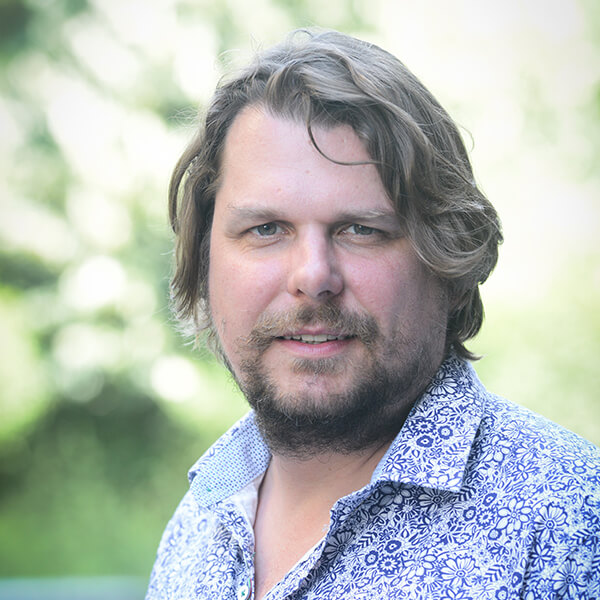
FLORIAN BORCHMEYER
Playwright, director.
He studied Romance literature in Berlin, Havana and Paris. In 2006 he obtained a doctorate in Philosophy with a dissertation on the chronicles of the New World in the 16th century. Since 2001 he works as a literary critic for Frankfurter Allgemeine Zeitung and as a cultural journalist for German public television channels (ARD, ZDF, 3Sat, ARTE). Between 2011 and 2019 he was head of dramaturgy at the Schaubühne theatre in Berlin where he now curates the Festival International New Drama (FIND), the most important platform for international contemporary theatre in the German capital. Since 2007, he has been curator of the international programme of Munich’s Filmest.
For Fondazione Teatro Due, he curated the adaptation of the novel ‘Second-hand Time’ by S. Aleksievic’s; was a member of the jury for the second edition of the project ‘Mezz’ore d’autore’; and collaborates as a lecturer in the Casa degli Artisti, the higher education course for theatrical professionals.
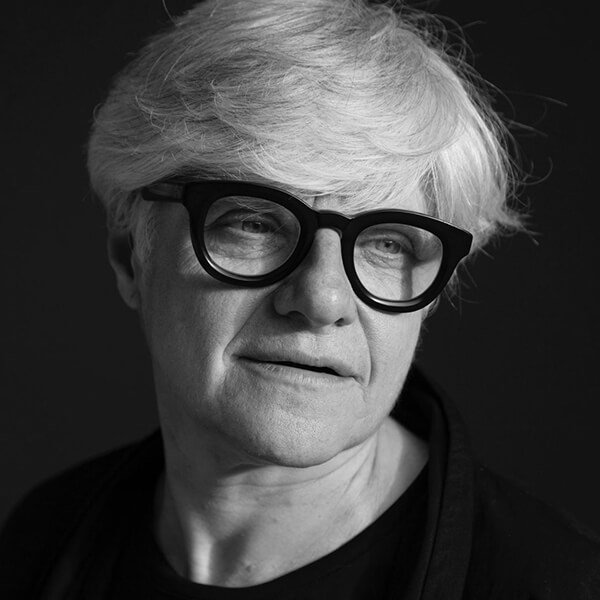
FRANCESCA DELLA MONICA
Singer, composer, music theorist.
Considered to be one of the most influential vocal pedagogues on the European scene, over the years she developed her own methodology for studying the voice, linked to the stage, by working with the most important theatrical directors, composers and musicians. As a vocal performer of new music, she has always dealt with a broad repertoire ranging from the Baroque to the present day.
With Fondazione Teatro Due she recently collaborated in ‘The Suppliants’ by Euripide directed by Serena Sinigaglia, and for years has been on the academic staff of the Casa degli Artisti, the higher education course for theatrical professionals.
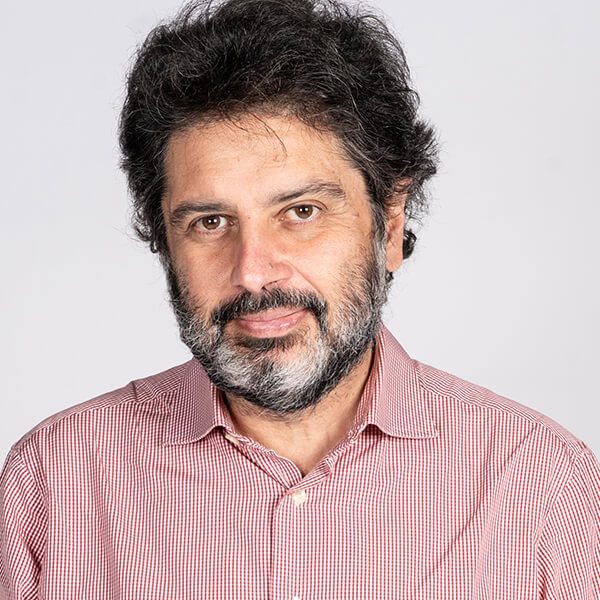
MASSIMILIANO FARAU
Director.
After graduating in Literature, he graduated in Direction at Accademia Nazionale d’Arte Drammatica “Silvio D’Amico”; later, he perfected his training at the Guildhall School of Music and Drama in London and attended the ‘Classe de Maitrise de Mise en Scène’ of the Centre Europeen de la Jeune Mise en Scène in Pélussin. He teaches acting at Accademia Nazionale d’Arte Drammatica ‘Silvio D’Amico’ and previously taught at Centro Sperimentale di Cinematografia, the New York Film Academy, the International Centre ‘La Cometa’, the Bernstein School of Musical Theatre, ‘Prima del Teatro – Scuola Europea per l’Arte dell’Attore’ and the National School of Drama in New Delhi.
For Fondazione Teatro Due, he has directed, among others: ‘Love’s Labour’s Lost’ by Shakespeare, ‘Lungs’ by Duncan Macmillan, ‘Krapp’s Last Tape’ by Samuel Beckett, ‘The Memory of Water’ by Shelagh Stephenson.
He also carries out an intense activity as a translator of theatrical texts.
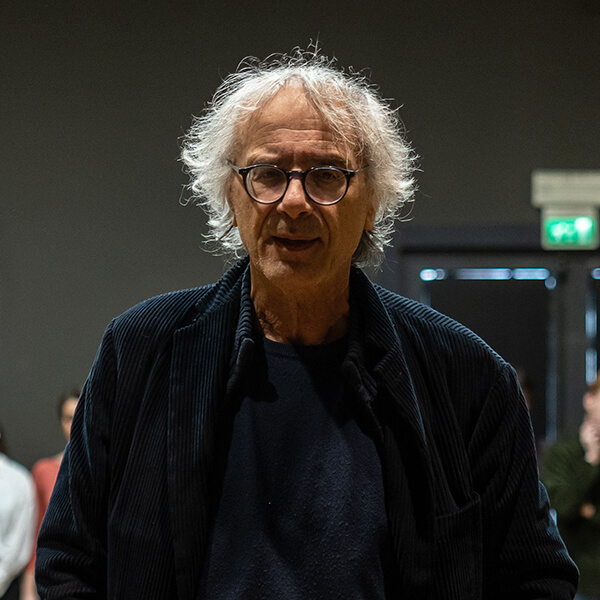
ALESSANDRO NIDI
Composer, conductor, pianist.
Since the early 1980s, he has collaborated with some of the most important cultural institutions in his city, Parma, such as Fondazione Teatro Due, Teatro delle Briciole and ‘Arturo Toscanini’ Symphony Orchestra, working on several productions, as author, composer, arranger and musician, contaminating pop with classical music. In 1987, he conducted the world premiere of Franco Battiato’s opera ‘Genesi’ . He composed and performed the music for the cult show ‘L’Istruttoria’, which has been on stage for over forty years. He collaborates with various artists from the world of opera, pop and drama theatre. He has composed operas, oratorios, musicals and stage music for various Italian and European theatres.
He also carries out intensive teaching activities in schools of all levels. In 2007, he started a workshop on conducting for children with the Orchestra of Fondazione Toscanini, which he conceived and conducted.

MASSIMILIANO FARAU
Regista.
Dopo la laurea in Lettere si è diplomato in Regia all’Accademia Nazionale d’Arte Drammatica “Silvio D’Amico” e ha perfezionato la sua preparazione si è alla Guildhall School of Music and Drama di Londra e ha frequentato la Classe de Maitrise de Mise en Scène del Centre Europeen de la Jeune Mise en Scène di Pélussin. Insegna recitazione all’Accademia Nazionale d’Arte Drammatica “Silvio D’Amico” e precedentemente è stato docente al Centro Sperimentale di Cinematografia, alla New York Film Academy, al Centro Internazionale “La Cometa”, alla Bernstein School of Musical Theatre, a “Prima del Teatro – Scuola Europea per l’Arte dell’Attore” e alla National School of Drama di New Delhi.
Per Fondazione Teatro Due ha diretto, tra gli altri: Pene d’amor perdute di Shakespeare, Lungs di Duncan Macmillan, L’ultimo nastro di Krapp di Samuel Beckett, La memoria dell’acqua di Shelagh Stephenson.
Svolge anche un’intensa attività anche come traduttore di testi teatrali.
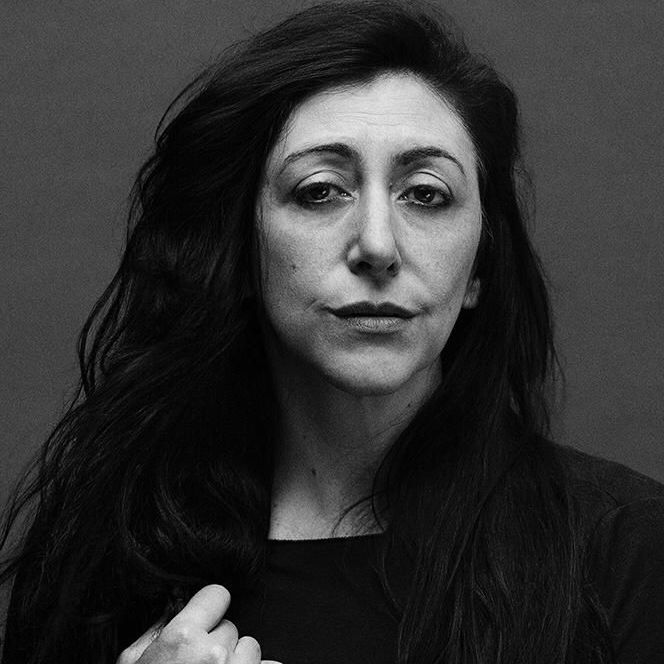
MONICA NAPPO / Attrice, regista.
Raffinata conoscitrice della drammaturgia contemporanea anglosassone, è stata la prima a portare in Italia opere come Psicosi delle 4:48 di Sarah Kane, Quale droga fa per me di Kai Hansel, East Coast di Tony Kushner, After the end di Dennis Kelly.
Molto attiva tra cinema, teatro, radio e musica, ha lavorato, fra gli altri, con Ferzan Ozpetek, Woody Allen, Paolo Sorrentino, Toni Servillo, Matteo Garrone, Mario Martone.
Per Fondazione Teatro Due ha diretto Ogni bellissima cosa di Duncan Macmillan, Top Girls di Caryl Churchill, L’esperimento di cui è autrice e protagonista e Ingrid e Lothar di Lina Prosa (all’interno del progetto Mezz’ore d’autore) e collabora come docente nel corso di alta formazione teatrale Casa degli Artisti.
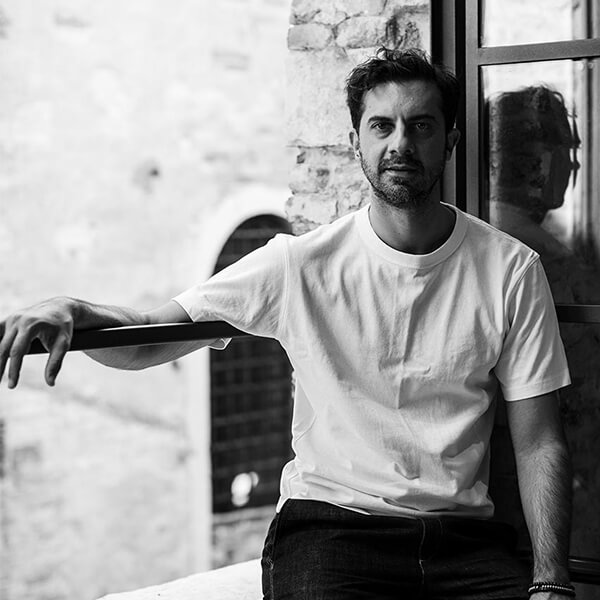
ALESSIO MARIA ROMANO / Coreografo, pedagogo.
Diplomato attore presso la Scuola del Teatro Stabile di Torino e Analisi del Movimento Laban/Bartenieff (C.M.A.) in U.S.A. e in U.K. dove approfondisce l’interesse per il movimento scenico e la pedagogia del movimento. Alla professione attorale – diretto, fra gli altri, da Mauro Avogadro, Giancarlo Cobelli, Elisabetta Pozzi – alterna quella di preparatore e assistente ai movimenti con, fra gli altri, Luca Ronconi, Carmelo Rifici, Valter Malosti, Daniele Salvo, Sonia Bergamasco, Jacopo Gassman, Declan Donnellan, Andrea De Rosa.
Attualmente è coordinatore didattico e docente di “movimento espressivo” alla Scuola L. Ronconi del Teatro Piccolo di Milano e docente del corso di alta formazione in danza contemporanea della compagnia Areare di Udine. Ha vinto il Premio nazionale della critica (ANCT) 2015 come pedagogo e coreografo teatrale e il Leone d’argento per il Teatro alla Biennale Teatro 2020.
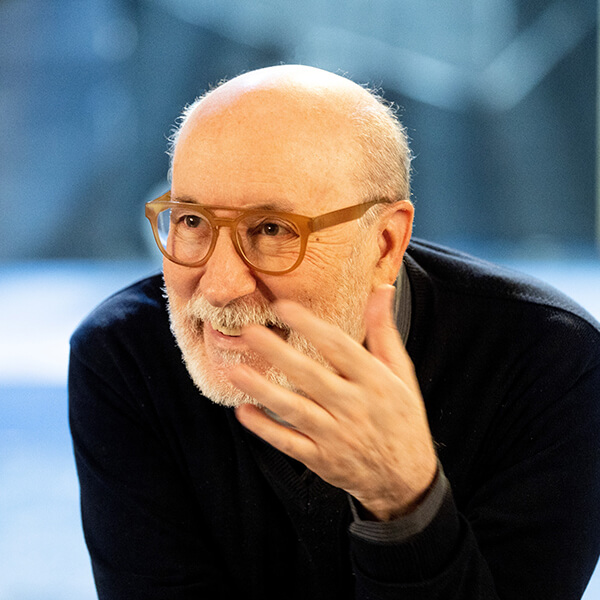
GIANCARLO SEPE / Regista.
Inizia giovanissimo l’attività teatrale formando una sua compagnia ed allestendo testi comici del teatro russo e di narrativa contemporanea italiana e straniera fino a fondare, nel 1972, il Teatro La Comunità. Premio Ubu per Così è (se vi pare) di Pirandello, Premio Le Maschere del Teatro Italiano per Morso di luna nuova di Erri De Luca, gli sono stati attribuiti per la sua opera anche il Premio Flaiano e il Premio Salvo Randone; attualmente ha all’attivo oltre 100 regie tra prosa e lirica ed è ospite fisso dei più importanti festival internazionali quali Nancy, Santarcangelo, il Festival di New York, Epidauro, Versiliana Festival ed il Festival dei Due Mondi di Spoleto.
Tra i suoi ultimi spettacoli: Beckett in camera da letto, Amletò: ovvero gravi incomprensioni all’hotel du nord, Germania Anni ’20, Bazin (il silenzio è d’oro).
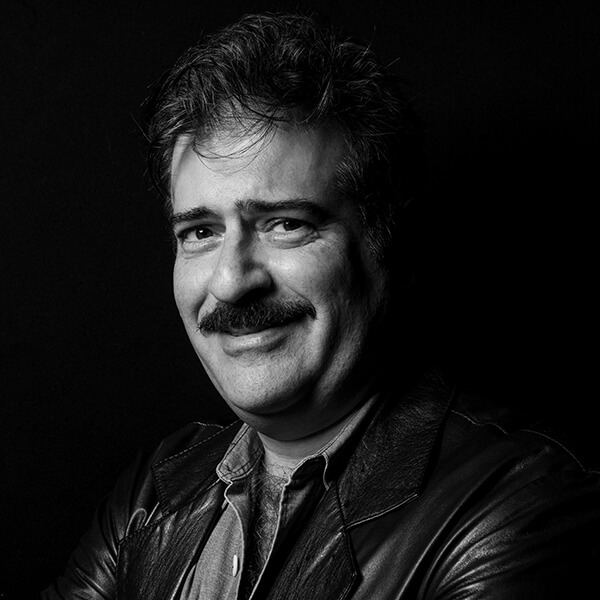
RAFAEL SPREGELBURD / Drammaturgo, attore, regista.
L’attività di Spregelburd è molteplice e variegata: è infatti anche autore di molte riflessioni sul teatro e, più in generale, nel campo dell’arte, del pensiero e della linguistica; è docente di drammaturgia e di recitazione, cura un inserto culturale da quasi 20 anni e conduce un programma dedicato all’architettura. Fondatore della compagnia El Patrón Vázquez, il suo lavoro ha ottenuto un vasto riconoscimento internazionale (premio Tirso de Molina, due volte Premio Ubu, ecc..). Ha recitato in oltre 40 film tra Argentina, Uruguay, Cile e Spagna e molto frequente è anche la sua partecipazione in serie televisive. La sua opera drammatica conta più di trenta titoli (La modestia, Il Panico, solo per citarne due tra i più conosciuti in Italia grazie anche agli allestimenti di Luca Ronconi) ed è tradotta in oltre 15 lingue. Ha scritto per il Royal Court Theatre, il National Theatre, la Schaubühne di Berlino, tra gli altri. Attualmente sta lavorando con Fondazione Teatro Due alla scrittura di un testo che verrà messo in scena nell’autunno del 2024.
È aperto il
BANDO DI SELEZIONE
per la settima edizione del corso di alta formazione teatrale
Casa degli Artisti
I DOCENTI
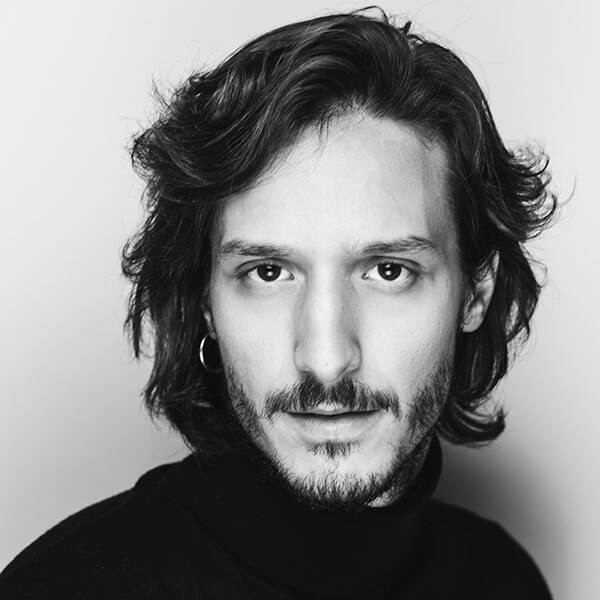
DARIO AITA / Attore, regista

FLORIAN BORCHMEYER / Drammaturgo, regista

MONICA NAPPO / Attrice, regista

ALESSIO MARIA ROMANO / Coreografo, pedagogo

GIANCARLO SEPE / Regista

RAFAEL SPREGELBURD / Drammaturgo, attore, regista.
An exploration on the relationship between music and words, between action and musical texture in the Beggar’s Opera by John Gay. The research on how to play and write classical theatre continues with a project on Euripides’ Alcesti. Inspired by Shakespeare’s Sonnets, Sonnets dance #121 is a research around the relationship between dance and words, an experimentation on how to work with space and body.
Augustin’s three acts pantomime carries on the research on the relationship between music and words, between writing in verse and incidental music. The dramaturgic experimentation is inspired by the work of Garcia Lorca, La Casa de Bernarda Alba and William Shakespeare’s Love’s labour’s lost.
Gigi Dall’Aglio’s work, inspired by Bertolt Brecht and Kurt Weill, aims to our contemporary society, it is an invitation to stop in order to answer to uncomfortable and dangerous questions. The Hungarian director and set designer Csaba Antal explores the world of Henrik Ibsen through the dystopic and disturbing lens of Peer Gynt.
Among William Shakespeare’s most controversial and experimental works is certainly The Tragedy of Troilus and Cressida, a cynical comedy that retraces some episodes of the Trojan War, but departing completely from the epic register. Alfieri’s Agamemnon and Orestes is the path chosen for a study of the voice and ancient epic verse. Musicality and rhythm from cabaret to the Italian song of the 1960s.
The study and work on contemporary dramaturgy in the sign of Harold Pinter. A special meeting with the Artistic Director of the Katona Theatre in Budapest, Gábor Máté. Immersive performance with Yuval Avital. Students conclude their journey by confronting Carlo Goldoni’s Molière, a play from 1751 that has been neglected by the Italian and international theatre scene.
A foray into the world of cinema with Dario Aita, who makes a full-length film together with his students. Activities with a master of Italian theatre, Giancarlo Sepe, and an encounter with the theatre of one of the most important contemporary playwrights, Rafael Spregelburd. A study of The Rover by Aphra Behn, the first ‘professional’ author in Anglo-Saxon theatre.
Progetto co-finanziato dalla Regione Emilia-Romagna
Approvato con delibera di Giunta Regionale n. 2096/2023 del 04/12/2023
Progetto FSE + 2 . Istruzione e formazione
Rif. PA 2023-20212/RER

